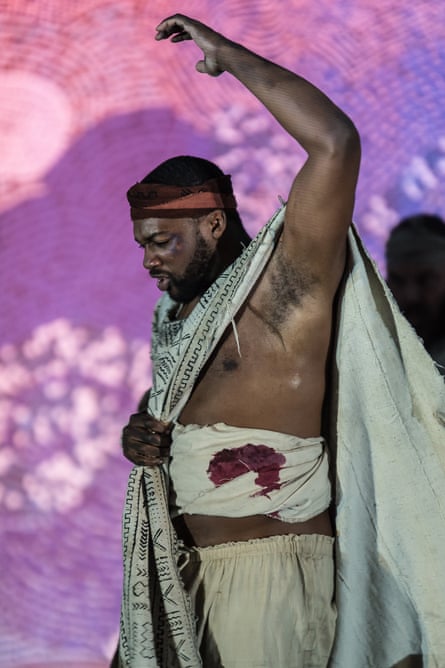Specialising in operas that have fallen by the wayside, this year’s Wexford festival in south-eastern Ireland opens with a rarity by Delius that premiered in 1904 and – one famous extract apart – has been infrequently performed since.
Set in early 19th-century Louisiana, its narrative must have seemed challenging in its day. To pacify the recalcitrant captured African prince Koanga, plantation owner Martinez tries to marry him off to his fellow slave Palmyra. But when she is abducted by the estate’s manager, Perez, Koanga rebels – with devastating consequences.
A collaboration between the composer and Charles F Keary, but performed here in a subsequent revision by other hands, the libretto is a clumsy affair. It attempts to offer Koanga and Palmyra a measure of dignity, but it is certainly not one of the work’s strengths.

Though uneven, the score is a good deal better; its finest sections revealing the influence of the African American music Delius had encountered in Florida in his early 20s, alternating with other passages possessing an almost Wagnerian intensity. Conductor Stephen Barlow keeps it on the move, while Michael Gieleta’s production, played in James Macnamara’s simple but effective sets, maintains a firm narrative line.
Both Jeff Gwaltney’s Perez and Christopher Robertson’s Martinez are hampered by the limitations of Delius’s writing, which rarely makes their villainy sufficiently threatening. But the two leads – Norman Garrett, physically and vocally imposing as Koanga, and Nozuko Teto, richly expressive as Palmyra – create an indelible impression.
Boyzie Cekwana’s choreography, realised by a group of five dancers, provides an injection of physical vitality, especially in the well-known dance sequence La Calinda, performed at Koanga and Palmyra’s abortive wedding. Overall, it’s a flawed work but an interesting one, and Wexford give it their best shot.
- In rep at National Opera House, Wexford, until 30 October. Box office: 053-912 2400

Comments (…)
Sign in or create your Guardian account to join the discussion